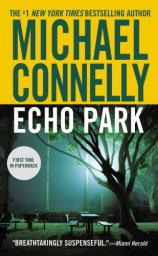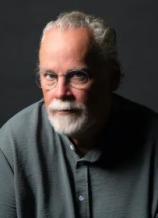Reading Group Guide
Discussion Questions
Echo Park

1. "It was the clothes that got to Bosch. The way they were folded so neatly. Did she do that? Or had it been the one who took her from this world?" Why do you think LAPD Detective Harry Bosch is obsessed with certain unsolved cases, like Marie Gesto's in Echo Park? Why would some cases haunt him more than others?
2. "They ought to strap him down, put the juice in him and send him down the hole to where he belongs." Bosch was initially appalled that Assistant DA Rick O'Shea would make a deal with Raynard Waits, giving him life in prison over the death penalty. Bosch believed that Waits should die for what he did. Do you believe it is worth negotiating with a serial killer in order to close more murder cases and provide answers to the families of victims? Does a life sentence in prison equal the death penalty?
3. "The prosecutor is running for DA. He needs the headlines." Harry didn't trust O'Shea's motives for making the deal with Waits—he thought O'Shea just wanted publicity for his campaign. In this particular case, do you think Harry was being cynical and narrow minded, or was O'Shea looking out for his own best interests by dealing with Waits?
4. "Taking it straight to the heart is the way of the true detective." Raynard Waits targeted young women who were "fringe dwellers," unaccounted for by society and not missed when they disappeared. Harry Bosch's philosophy has always been that everybody counts or nobody counts. It makes him good at his job but also makes him vulnerable. Why?
5. "It makes you wonder, doesn't it? About how many of these guys are out there. The under the surface killers." Waits was arrested by accident—the police were looking for burglars when they stumbled onto him. Potentially, he could have continued to kill unnoticed for years to come. FBI Agent Rachel Walling's evaluation was that he was an intelligent and organized killer—the police got lucky catching him. Can you see how someone like Waits could get away with murder for years?
6. "The call would not be a complete shock to them." Harry Bosch had continued to call Marie Gesto's parents over the 13 years since her disappearance. He thought it was some measure of comfort for them to know he had not given up. Do you think this was wise for Harry to do? Did this bring comfort to the parents or just fill them with hope and unfulfilled expectations? Was Harry personally responsible to these people?
7. "They were eyes that were hurt from the inside out. " Harry Bosch felt a sense of damage in Rachel Walling. He thought she had victim's eyes. Why is he drawn to her because of that? Why is she drawn to him?
8. "But I've got to tell you, partner, you're doing that cowboy thing again and I don't like it very much." Following protocol and regulations doesn't seem to matter too much to Harry Bosch. His partner, Kizmin Rider, and Rachel Walling, struggled to deal with Harry's solo outings, his rule breaking, his recklessness—what Harry called "going off the reservation." What are the pros and cons of working with Harry Bosch? Do you think he intentionally tries to alienate people or is it just a result of his narrow focus on his mission?
9. "If you can't stand the ghosts, get out of the haunted house." Harry was devastated to find out that he and his former partner, Jerry Edgar, had made a mistake when initially investigating Marie Gesto's disappearance in 1993. Kizmin Rider thought about quitting the force after she froze when she should have gone for her gun in Beachwood Canyon. Were they right to beat themselves up over these mistakes? Or was Rachel Walling right when she said that mistakes are part of their job?
10. "You are nothing but a political opportunist and a hack." Irvin Irving has been Harry Bosch's nemesis since the beginning of this series. Harry was there to witness Irving being forced out of the LAPD by the Chief (The Closers), In Echo Park, Irving is running for City Council. Is Michael Connelly setting us up for future showdowns between Bosch and Irving? If elected, how do you imagine Irving will use this position against the LAPD and Harry Bosch in future books?
11. "You went your way and I went mine. I guess I fed the wrong dog." Harry Bosch and Raynard Waits had similar backgrounds—their childhood was spent in and out of youth halls and foster homes. A sad story but not necessarily unique. How is it that some people, like Bosch, manage to survive and rise above their past, while others, like Waits, do not?
12. "Predicted, hoped, set in motion—what's the difference?" What do you think about Rachel Walling's accusations at the end of the book? Was she right?








